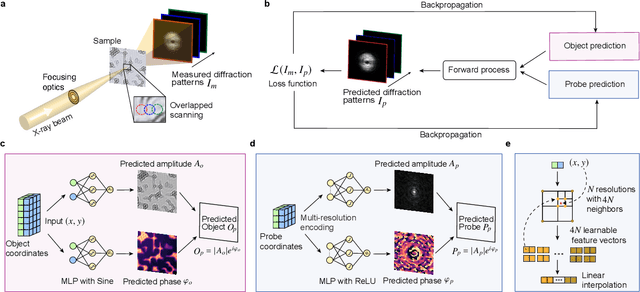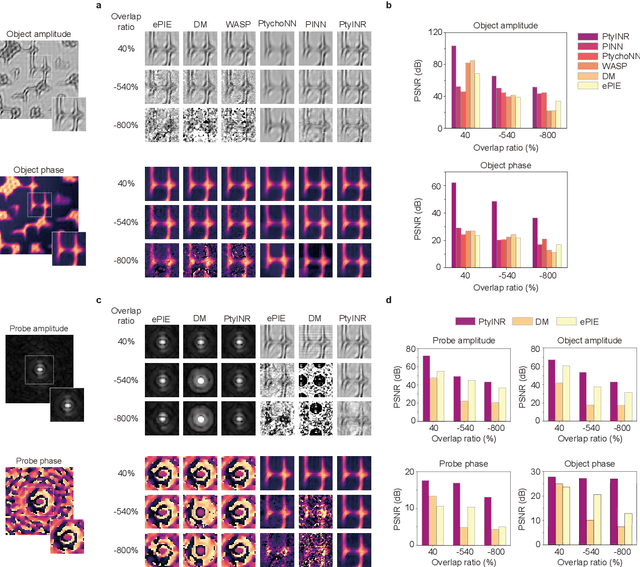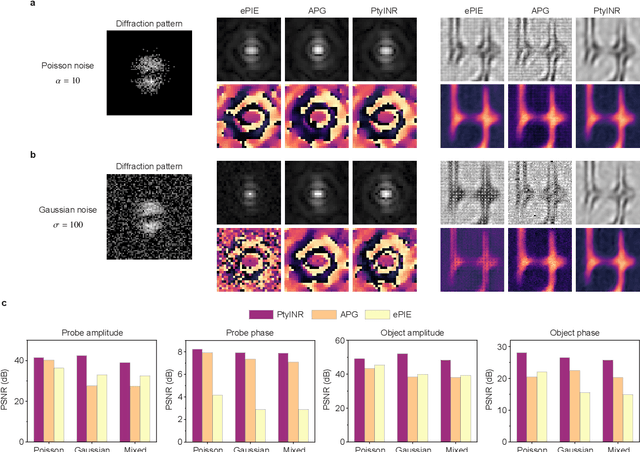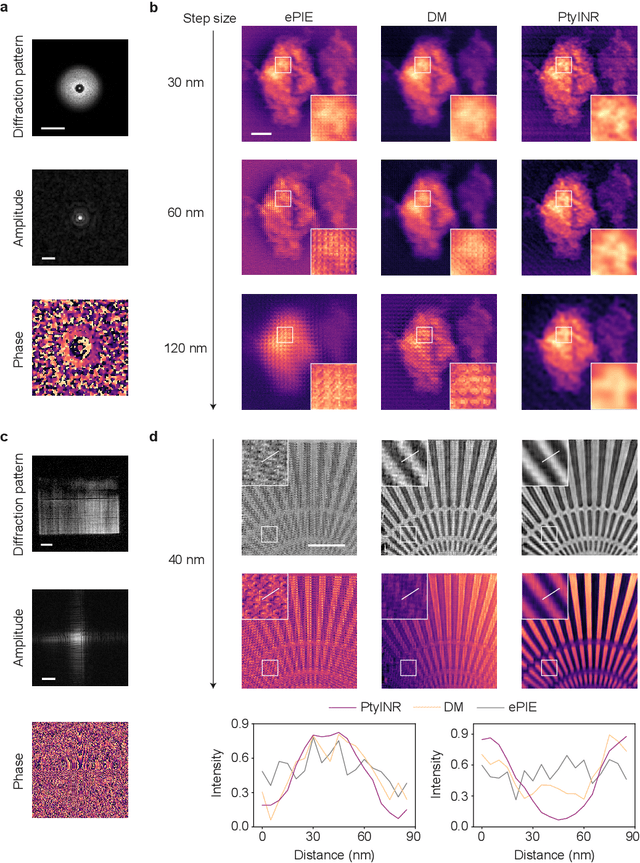Tingyou Li
Learning neural representations for X-ray ptychography reconstruction with unknown probes
Sep 04, 2025



Abstract:X-ray ptychography provides exceptional nanoscale resolution and is widely applied in materials science, biology, and nanotechnology. However, its full potential is constrained by the critical challenge of accurately reconstructing images when the illuminating probe is unknown. Conventional iterative methods and deep learning approaches are often suboptimal, particularly under the low-signal conditions inherent to low-dose and high-speed experiments. These limitations compromise reconstruction fidelity and restrict the broader adoption of the technique. In this work, we introduce the Ptychographic Implicit Neural Representation (PtyINR), a self-supervised framework that simultaneously addresses the object and probe recovery problem. By parameterizing both as continuous neural representations, PtyINR performs end-to-end reconstruction directly from raw diffraction patterns without requiring any pre-characterization of the probe. Extensive evaluations demonstrate that PtyINR achieves superior reconstruction quality on both simulated and experimental data, with remarkable robustness under challenging low-signal conditions. Furthermore, PtyINR offers a generalizable, physics-informed framework for addressing probe-dependent inverse problems, making it applicable to a wide range of computational microscopy problems.
Coordinate-based Neural Network for Fourier Phase Retrieval
Nov 25, 2023Abstract:Fourier phase retrieval is essential for high-definition imaging of nanoscale structures across diverse fields, notably coherent diffraction imaging. This study presents the Single impliCit neurAl Network (SCAN), a tool built upon coordinate neural networks meticulously designed for enhanced phase retrieval performance. Bypassing the pitfalls of conventional iterative methods, which frequently face high computational loads and are prone to noise interference, SCAN adeptly connects object coordinates to their amplitude and phase within a unified network in an unsupervised manner. While many existing methods primarily use Fourier magnitude in their loss function, our approach incorporates both the predicted magnitude and phase, enhancing retrieval accuracy. Comprehensive tests validate SCAN's superiority over traditional and other deep learning models regarding accuracy and noise robustness. We also demonstrate that SCAN excels in the ptychography setting.
Using wearable device-based machine learning models to autonomously identify older adults with poor cognition
Aug 28, 2023



Abstract:Conducting cognitive tests is time-consuming for patients and clinicians. Wearable device-based prediction models allow for continuous health monitoring under normal living conditions and could offer an alternative to identifying older adults with cognitive impairments for early interventions. In this study, we first derived novel wearable-based features related to circadian rhythms, ambient light exposure, physical activity levels, sleep, and signal processing. Then, we quantified the ability of wearable-based machine-learning models to predict poor cognition based on outcomes from the Digit Symbol Substitution Test (DSST), the Consortium to Establish a Registry for Alzheimers Disease Word-Learning subtest (CERAD-WL), and the Animal Fluency Test (AFT). We found that the wearable-based models had significantly higher AUCs when predicting all three cognitive outcomes compared to benchmark models containing age, sex, education, marital status, household income, diabetic status, depression symptoms, and functional independence scores. In addition to uncovering previously unidentified wearable-based features that are predictive of poor cognition such as the standard deviation of the midpoints of each persons most active 10-hour periods and least active 5-hour periods, our paper provides proof-of-concept that wearable-based machine learning models can be used to autonomously screen older adults for possible cognitive impairments. Such models offer cost-effective alternatives to conducting initial screenings manually in clinical settings.
 Add to Chrome
Add to Chrome Add to Firefox
Add to Firefox Add to Edge
Add to Edge